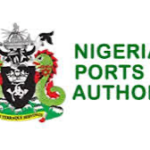The Paris Olympic Games culminate years of effort by organizers that have been punctuated by sometimes controversial labor action and political demonstrations.Why it matters: It’s not unusual for Olympic Games to be mired in protests, but the breadth of issues hotly debated ahead of the 2024 Games underscores the turbulent political context surrounding this year’s Games.The demonstrations also highlight France’s long tradition of protest.Catch up quick: In October 2023, protesters gathered outside the Paris Olympics headquarters to implore organizers to respect the rights of migrants and other unhoused people, as Paris authorities allegedly ramped up encampment clear-outs ahead of the Games, AP reported.Labor strikes have repeatedly beset Olympic preparations as well. Construction workers, as well as employees at the Paris Mint — which is making the Olympic medals — and others have demanded better conditions and pay.Airport workers also threatened to strike in mid-July but the action was ultimately called off.The big picture: Protests surrounding this year’s Games have gone beyond domestic politics as well.In April, the Paris headquarters was also the site of pro-Palestinian protests against Israel’s “institutional participation” in the Games, per AP.Demonstrators argued that Israeli athletes should follow a similar protocol to Russian athletes, who compete under a neutral flag and without the presence of Russian officials at the Games due to previous doping scandals and Russia’s invasion of Ukraine.Paris’ roughly $1.5 billion — and setback-plagued — effort to clean up the River Seine has also attracted the ire of protesters.Many Parisians have been angered by the cost of hosting the Games and the strain it will place on the city.On social media, a viral hashtag circulated in May and June encouraging residents to defecate in the Seine — following Paris Mayor Anne Hidalgo and President Emmanuel Macron’s promise to take a swim in the cleaned-up river, France Info reported.
Notification
Show More
Search
Have an existing account?
Sign In







